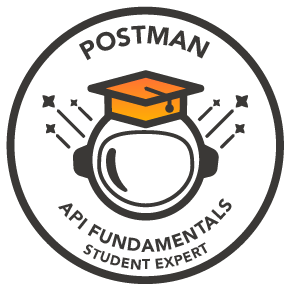Mastering Postman: Expert Tips For Streamlined API Workflows

Table of Contents
Optimizing Postman Collections for Efficiency
Properly organizing your Postman collections is crucial for efficient API management, especially when dealing with numerous APIs and endpoints. A well-structured collection allows for quicker navigation, easier collaboration, and simplified maintenance.
Organizing Your Collections
Effective collection organization is paramount for large API projects. Here’s how to do it right:
- Use descriptive names and folders: Avoid vague names. Use clear, concise names that reflect the API's purpose (e.g., "User Authentication," "Product Catalog API"). Organize requests into logical folders within the collection.
- Group related requests logically: Group requests that serve a similar function together. For example, all requests related to user management should be in one folder. This improves readability and maintainability.
- Utilize Postman's collection features (description, tags) for easy searchability: Add detailed descriptions to your collections and requests. Use tags to categorize collections based on functionality, environment, or team ownership. This makes searching and filtering much easier.
- Example: Separate collections for user authentication, product APIs, and payment gateways. Within each collection, create folders for different functionalities (e.g., user creation, user retrieval, user update).
Leveraging Postman Environments
Managing different API environments (development, testing, staging, production) efficiently is key. Hardcoding environment-specific details directly into your requests is a recipe for errors and inconsistencies.
- Define environment variables for URLs, API keys, and other dynamic data: Store environment-specific data like base URLs, API keys, tokens, and database connection strings as environment variables. This allows you to easily switch between environments without modifying individual requests.
- Easily switch between environments without modifying individual requests: Postman allows you to quickly switch between different environments, ensuring consistency across your workflow.
- Avoid hardcoding sensitive information directly into your requests: Never hardcode sensitive data directly into your requests. This is a major security risk. Always use environment variables to store and manage sensitive information securely.
- Example: Using environment variables for base URLs (
{{baseUrl}}), API keys ({{apiKey}}), and database connection strings ({{dbConnectionString}}).
Automating Repetitive Tasks with Postman Pre-request Scripts
Postman's pre-request scripts offer powerful automation capabilities. These scripts, written in JavaScript, run before each request, automating repetitive tasks.
- Use JavaScript to write pre-request scripts: Postman supports JavaScript, allowing you to perform complex logic and data manipulation before each request is sent.
- Generate random data or fetch data from external sources: Automate the generation of test data, such as random user IDs or emails, or fetch data from external databases or APIs.
- Automate login processes and token management: Automate the process of obtaining authentication tokens and managing session data, streamlining your workflow.
- Example: Generate unique user IDs before each request to test user registration, ensuring that each test uses unique data.
Advanced Postman Techniques for Powerful API Testing
Moving beyond the basics, let's explore advanced Postman features to enhance your API testing capabilities.
Mastering Assertions for Robust Validation
Assertions are crucial for verifying that your API responses meet expectations. Postman provides a robust assertion system.
- Write assertions to check status codes, response body, headers, etc.: Verify that the API response meets the expected criteria, such as checking the HTTP status code (e.g., 200 OK), validating the response body structure, or ensuring specific headers are present.
- Use different assertion types (contains, equals, less than, greater than): Postman offers various assertion types to check for different conditions, allowing for precise validation.
- Implement custom functions for complex validation: For more complex scenarios, create custom functions to perform tailored validation checks.
- Example: Assert that the response status code is 200 (OK) and that the JSON response contains a specific field like "userId".
Utilizing Postman Monitors for Proactive API Monitoring
Postman Monitors allow you to schedule automated API tests, ensuring that your APIs remain functional and performant.
- Set up monitors to run tests at specified intervals: Configure monitors to run your API tests regularly (e.g., every hour, daily) to proactively detect issues.
- Receive notifications (email, Slack) if tests fail: Set up notifications to alert your team immediately when tests fail, enabling rapid response to issues.
- Identify performance bottlenecks and potential API errors early: Regular monitoring helps identify performance issues and potential errors early, before they impact users.
- Example: Monitor critical APIs daily to detect downtime or performance degradation.
Collaborating Effectively with Postman Workspaces
Postman Workspaces facilitate team collaboration, allowing for shared collections, environments, and monitors.
- Create workspaces to manage access control and collaboration: Organize your API projects into workspaces, controlling access and permissions for different team members.
- Share collections with team members for efficient testing and development: Share your collections to enable efficient collaboration and code reuse.
- Utilize version control for managing collection changes: Integrate with version control systems (e.g., Git) to track changes and manage different versions of your collections.
- Example: A dedicated workspace for a project team to streamline API testing and development. Each team member can access shared collections and environments.
Best Practices for Efficient Postman Workflows
Beyond specific features, adopting best practices significantly improves your overall efficiency in Postman.
Documentation and Code Reusability
Well-documented APIs and reusable code are essential for long-term maintainability and team collaboration.
- Write clear and concise descriptions for requests and collections: Document the purpose, parameters, and expected responses of each request.
- Use Postman's documentation features to generate API documentation: Postman allows you to generate API documentation directly from your collections, simplifying the process.
- Create reusable code snippets using Newman or other integration tools: Develop reusable code snippets for common tasks to avoid redundancy and improve consistency.
- Example: Generating interactive API documentation for easy understanding and access, ensuring consistent and up-to-date documentation.
Utilizing Postman's Integrations
Postman seamlessly integrates with various CI/CD pipelines and other development tools.
- Integrate with CI/CD pipelines (Jenkins, GitLab CI): Automate your API testing as part of your CI/CD pipeline, ensuring that every code change is thoroughly tested.
- Connect to monitoring tools (Datadog, New Relic): Integrate with monitoring tools to gain insights into API performance and identify potential issues proactively.
- Use Postman's collaboration features to facilitate team development: Utilize Postman's collaboration features (workspaces, comments) to foster effective team communication and code sharing.
- Example: Automating API testing as part of your CI/CD pipeline using Jenkins, ensuring tests run automatically upon each code commit.
Conclusion
Mastering Postman significantly enhances your API workflows, increasing efficiency and reducing errors. By implementing the tips outlined above – from organizing collections and using environments to mastering assertions and utilizing monitors – you can unlock the full potential of Postman for streamlined API development and testing. Start optimizing your API workflows today and become a Postman expert. Begin mastering Postman now and experience the power of streamlined API interactions!

Featured Posts
-
 Ufc 313 Star Concedes Opponent Deserved Victory After Robbery Claims
May 19, 2025
Ufc 313 Star Concedes Opponent Deserved Victory After Robbery Claims
May 19, 2025 -
 Tony Todd Returns In Final Destination Bloodlines Watch The New Trailer
May 19, 2025
Tony Todd Returns In Final Destination Bloodlines Watch The New Trailer
May 19, 2025 -
 Bbc Radio 2 Eleccion De La Mejor Entrada De Eurovision Del Siglo Xxi
May 19, 2025
Bbc Radio 2 Eleccion De La Mejor Entrada De Eurovision Del Siglo Xxi
May 19, 2025 -
 Cooke Maroney And Jennifer Lawrence Couple Seen Out After Second Child Speculation
May 19, 2025
Cooke Maroney And Jennifer Lawrence Couple Seen Out After Second Child Speculation
May 19, 2025 -
 Geopolitique Et Environnement Maritime Perspectives De Credit Mutuel Am
May 19, 2025
Geopolitique Et Environnement Maritime Perspectives De Credit Mutuel Am
May 19, 2025
